If you manage your business’ social media solo, you know the routine: creating posts, responding to customers, tracking engagement, planning content calendars—and probably for more than one platform. Add multiple accounts, each with its own best practices and posting demands, and social media can easily take up more time than you may have.
Social media management tools can simplify (and often automate) these tasks, from designing posts to publishing them when your audience is most active. Some combine several features into one platform, such as Tailwind—LegalZoom’s trusted partner and top overall pick. With AI tools and a strong focus on visual content, it’s the perfect fit for businesses active on Instagram or Pinterest.
While Tailwind stands out, there are other useful tools worth exploring—each with its own strengths, depending on what you need most.
Top social media management tools at a glance
Before diving into the details for each brand, let’s take a look at how each social media management tool compares.
Hello there, I am custom HTML code!
Note that prices reflect the starting monthly subscription cost at the time of writing. Most brands also offer discounted annual billing options (Sprout Social, in particular, bills all plans annually). Pricing structures vary by tool—some charge per user, others by number of profiles or features—and may change over time.
1. Tailwind: Best overall for visual content

Tailwind was originally designed for Pinterest marketing and now supports Facebook and Instagram as well. It’s an excellent tool for creating content, keeping your visual branding consistent, and growing your social presence.
If Pinterest is a key part of your marketing strategy, Tailwind is hard to beat—and its compatibility with Meta platforms makes it an even more well-rounded tool for any visual-first brand.

Pros
- Generates branded, ready-to-post designs from your images, making it easy to produce content at scale
- Built with Pinterest in mind, with niche features, educational resources, and communities to connect with other users
- Includes helpful extras like a hashtag finder, link in bio tool, and browser extensions for quick pinning and posting
Cons
- Compatible with three platforms, so you may need a second tool
- Free plan only allows up to five posts per month
Social networks



Pricing
Tailwind offers one free plan and separate paid options for Pinterest and Instagram, both of which allow you to cross-post on Facebook. You can also sign up for Pinterest add-ons, including Tailwind Create and Tailwind Communities. Note that the paid plans have monthly and yearly billing options (with discounts for annual subscriptions), but all add-ons are billed annually.
- Free trial: Access to all Tailwind features, schedule up to 100 Pins on Pinterest and 30 posts on Instagram, and no time limit for the trial.
- Pinterest Plus: $14.99/month or $119.88/year. Unlimited scheduling, 15 free posts in Tailwind Create, and five free Tailwind Communities.
- Instagram Plus: $14.99/month or $199.88/year. Unlimited scheduling, hashtag suggestions, and Smart.bio tool.
Key features
Tailwind has numerous features just for Pinterest, including keyword tools, pin designs, idea generators, and browser extensions for easy posting. In addition, Tailwind offers these core features for all compatible platforms.
- Tailwind Create: Generate hundreds of social media posts from uploaded photos. Designs are optimized for each platform and can be customized with your brand’s colors, fonts, or logo.
- SmartSchedule: Automatically schedules posts at peak engagement times on each platform.
- AI tools (Ghostwriter and Copilot): Tailwind’s AI features can help you draft all kinds of marketing copy and plan content strategies tailored to your business.
- Analytics and optimization: Use tools like Tailwind’s hashtag finder to improve post visibility, track performance with built-in metrics and reporting, and drive traffic with Smart.bio, a customizable link in bio tool.
2. Meta Business Suite: Best free option for Facebook and Instagram
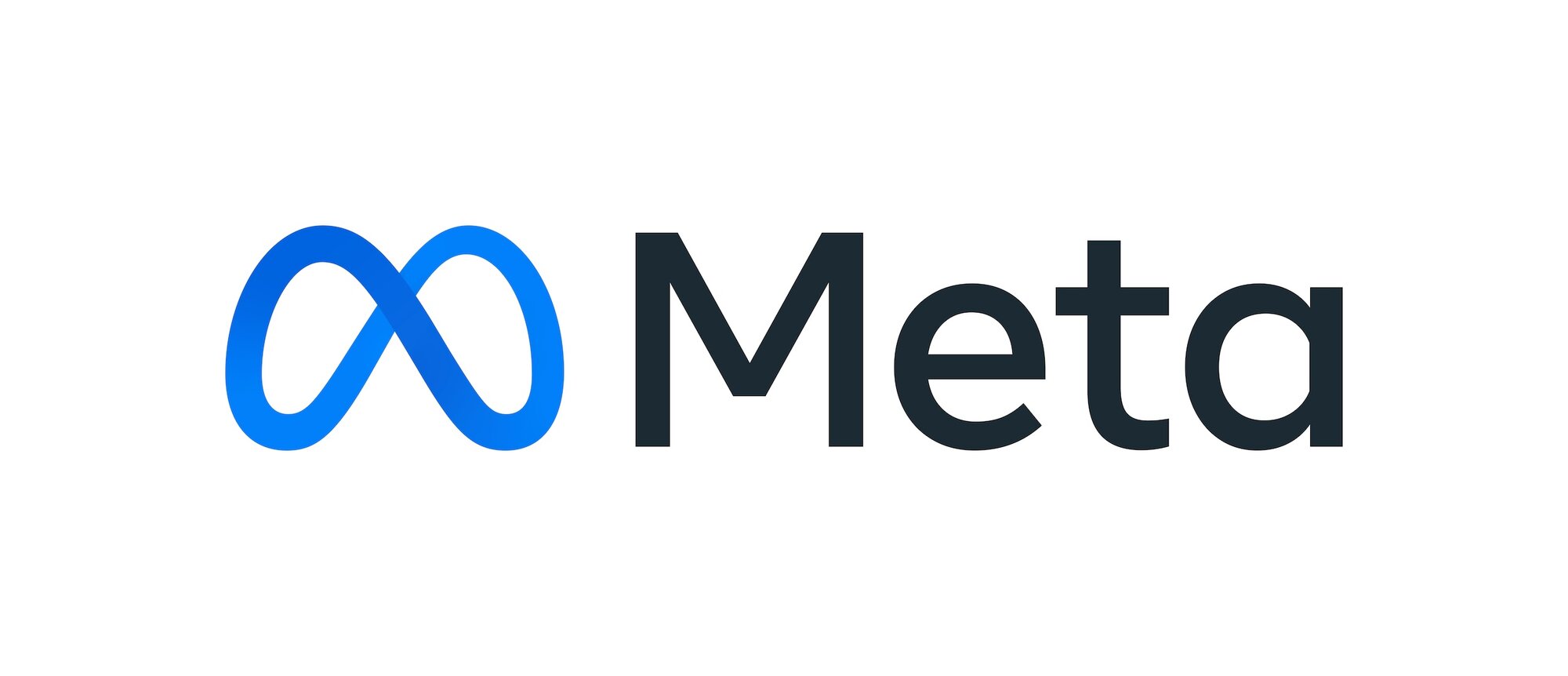
Meta Business Suite is a great beginner tool if you’re just starting to build your presence on Facebook or Instagram. You can schedule posts, respond to messages, and track performance—all from one dashboard on desktop or mobile. It’s also free to use, and there’s no extra setup since it’s already built into your account.
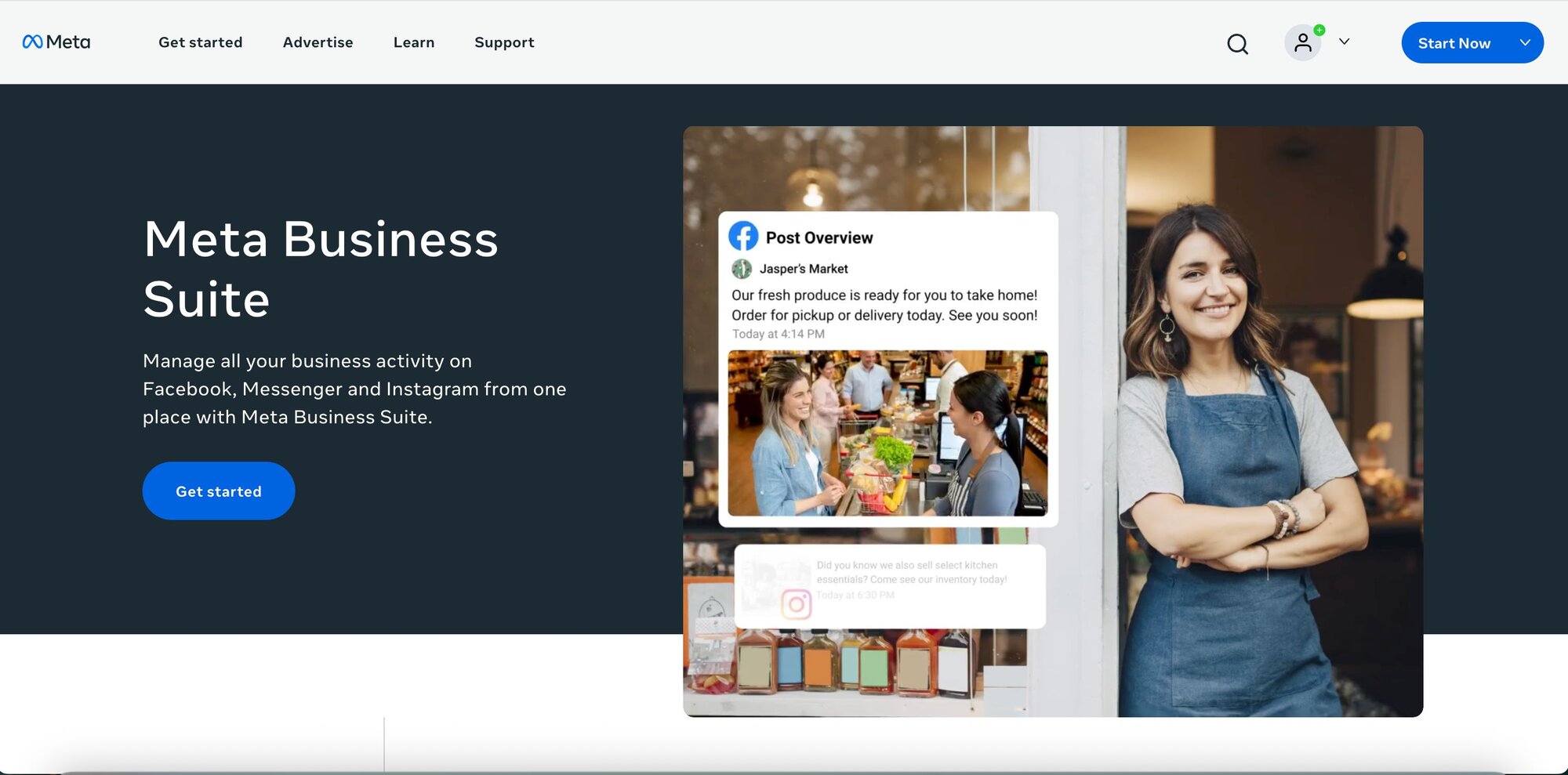
Pros
- Helpful for small teams or solo social media managers who don’t need a ton of extra features
- Pulls messages, comments, and notifications into a single inbox
- Mobile support lets you check in or make updates when you’re on the go
- Includes basic ad tools if you plan on running paid campaigns
Cons
- Limited analytics and reporting options
Social networks



Pricing
Any business that has a Facebook page can use Meta Business Suite for free (aside from optional ad spend).
Key features
As a native tool, Meta Business Suite gives you access to features you might not find with third-party platforms. While there can be a bit of a learning curve, it covers a lot of ground for a free tool, even if it doesn’t offer the same flexibility or depth as some paid options.
- Centralized inbox: Manage messages and comments from all three platforms in one place, with the option to set up automated replies.
- Content scheduling: Plan and schedule content up to 29 days in advance across Facebook and Instagram, including feed posts, stories, and reels.
- Analytics and insights: See how your content is performing with basic metrics like reach, engagement, and follower trends. You can also run A/B tests on Facebook.
- Ad creation and management: Boost posts or run ad campaigns directly from the dashboard.
3. Buffer: Best for multi-platform posting

Buffer is one of the most versatile social media management tools. You can create content, schedule posts, track engagement, and manage everything across most major platforms—from LinkedIn to TikTok. It also integrates with third-party apps like Canva and Google Drive, which makes it easy to consolidate all your social content for each channel.
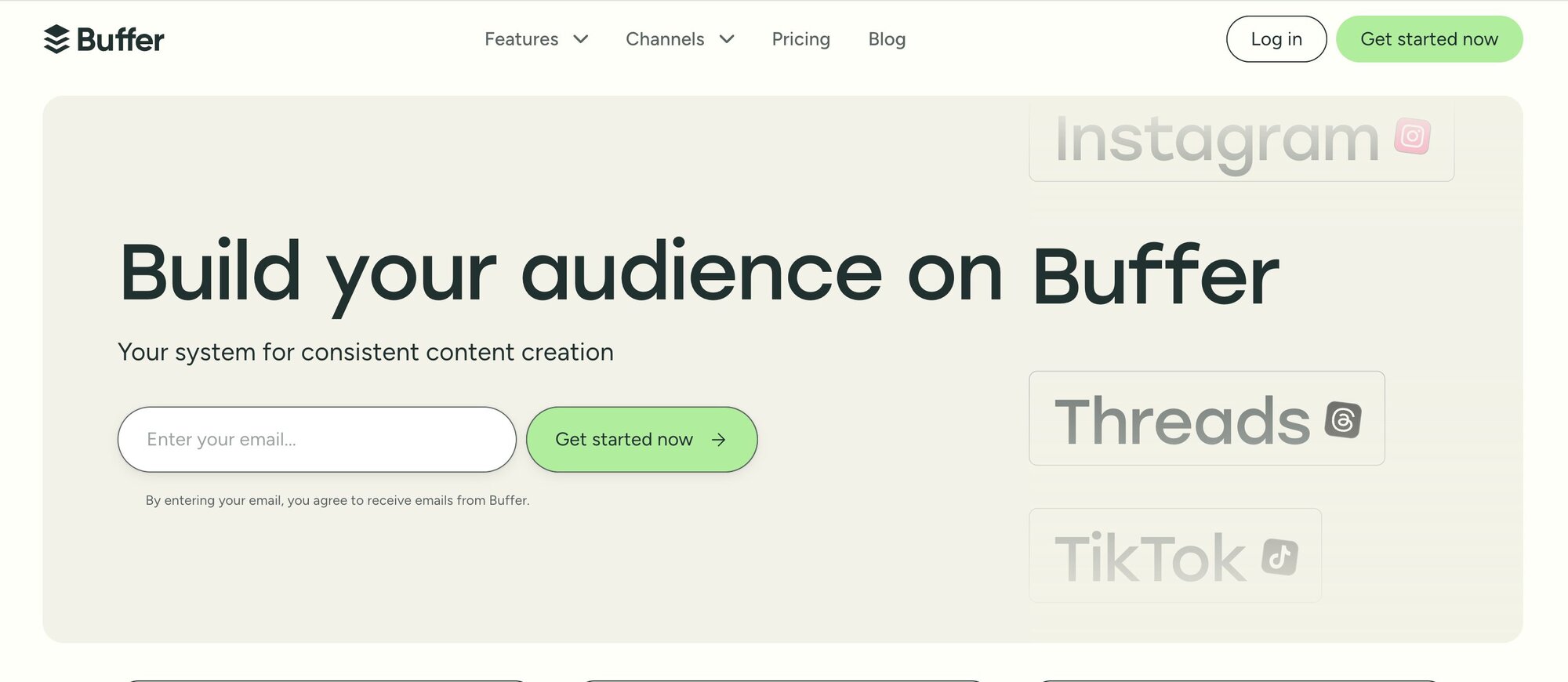
Pros
- Reasonable subscription costs, plus a free plan to try out basic features
- Seamless integration and compatibility with most social channels
- Simple interface that’s easy to navigate, even for beginners
Cons
- Pricing is per channel, so the costs can add up if you connect to several platforms
- Limited content creation features aside from third-party integrations
Social networks











Pricing
Buffer offers a free plan and two paid tiers, with pricing based on the number of social channels you connect. All plans include a 14-day free trial, access to Buffer’s AI assistant, and customer support. Paid plans are available with monthly or discounted annual billing.
- Free: Connect up to three channels, 10 scheduled posts per channel, and basic analytics.
- Essentials: $6/month or $60/year per channel. Unlimited posts, advanced analytics, first comment scheduling, and more content planning tools.
- Team: $12/month or $120/year per channel. Unlimited users, access controls, and content approval workflows.
Key features
Buffer has several features that can help you stay organized, save time, and grow your business’ social media strategy. Here are a few features worth highlighting.
- Centralized content planning: Create, schedule, and organize posts for every channel from one dashboard.
- Cross-platform analytics: View performance data across all connected accounts and generate custom reports.
- Community engagement: Track all your comments and get alerts if something important needs your attention.
- Content assistance: Buffer’s AI tool can help you generate ideas, write copy, and fine-tune your posts.
- Link in bio tool: Build a custom landing page that can include videos, products, and more.
4. Later: Best calendar view for scheduling

Later offers a few social media tools, but its scheduler and management platform is best suited for small businesses and creators. While you can opt for advanced features like influencer marketing and social listening, they come at a higher price.
Nonetheless, the core management tool has just about everything you need to plan, post, and grow your social media presence across most of the popular channels.
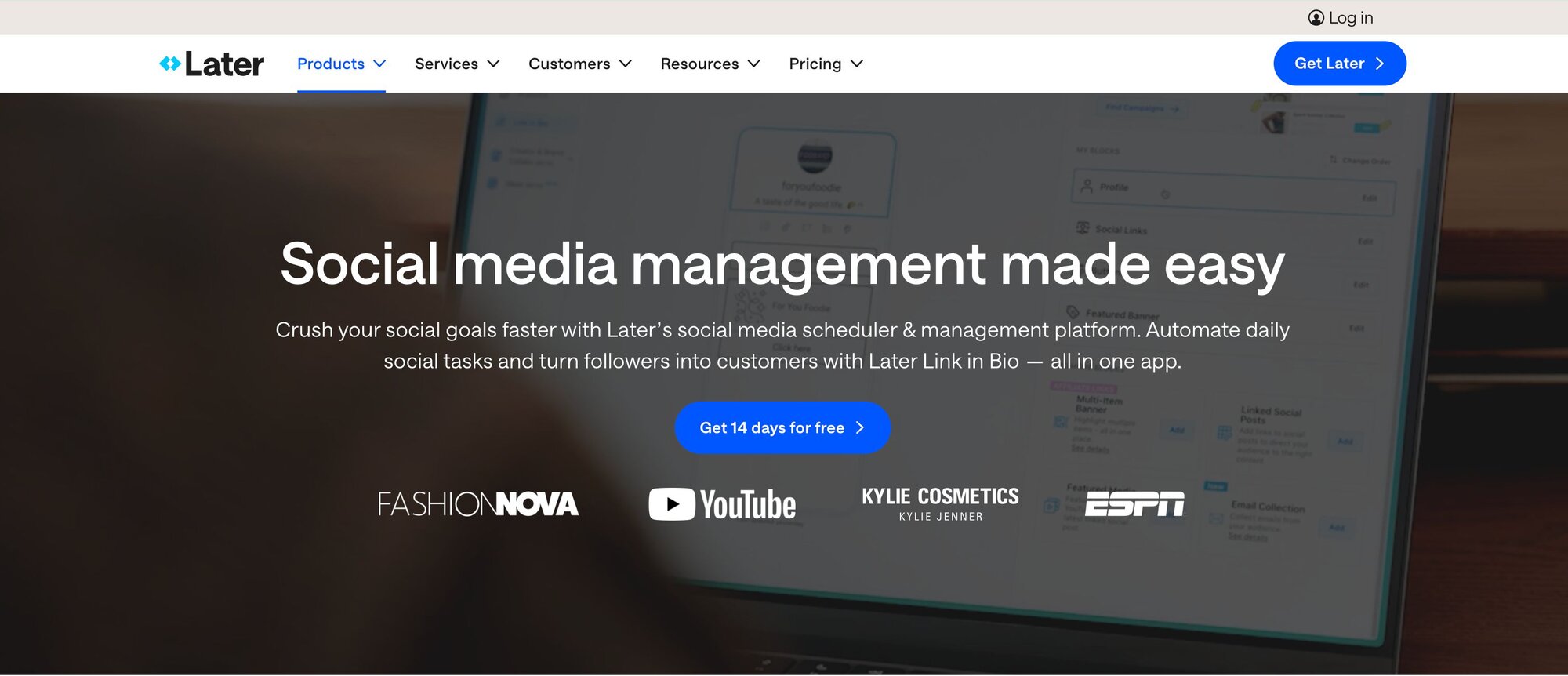
Pros
- Lots of features made specifically for Instagram and TikTok
- Easy-to-use visual planner for scheduling social media posts in bulk
- Helpful hashtag suggestions and research tools
Cons
- Limited AI features aside from the caption writer
- Basic analytics and reporting features
Social networks









Pricing
Later doesn’t offer a free version, but all paid plans come with a 14-day free trial. You can also pay for add-ons for each plan, such as adding extra user seats or raising your maximum social account limits. All plans have monthly and discounted annual billing options.
- Starter: $25/month or $200.04/year. Connect up to nine social media profiles (one per platform), 30 scheduled posts per profile, and limited analytics.
- Growth: $45/month or $360/year. Connect up to 27 social media profiles (three per platform), 150 scheduled posts per profile, social inbox, full analytics, and brand tools.
- Advanced: $80/month or $639.96/year. Connect up to 54 social media profiles (six per platform), unlimited post scheduling, team collaboration tools, and more.
Key features
Later’s social media scheduler and management tool can help you plan, create, and publish content for each channel in one place. Here are some of the top features to consider.
- Creation tools: Get hashtag suggestions, find user-generated content, and import visual assets from Canva.
- Publishing and scheduling: Optimize posts and then schedule them at recommended times based on audience activity (currently available for Instagram and TikTok).
- Caption inspiration: Later’s caption writer can help spark ideas and draft Instagram posts tailored to your audience.
- Link in bio: Create a unique bio page for your Instagram, TikTok, or Snapchat profiles.
5. Hootsuite: Best all-in-one platform for larger teams

Hootsuite is one of the most comprehensive social media management tools out there. It has everything from post scheduling and publishing to more advanced features like social listening, engagement tools, team collaboration, and paid ad management.
While it comes at a higher cost, Hootsuite brings most of what you need into one centralized dashboard—which is especially useful if you’re managing a complex strategy or working with a team.

Pros
- True all-in-one platform for publishing, scheduling, analytics, and social listening
- User permissions and collaborative workflows for teams
- Integrates with popular business tools and project management apps
Cons
- Higher pricing, even for the standard plan
- May feel overly complex if you don’t need all the extra features
Social networks








Pricing
Hootsuite offers two paid plans (plus a customizable enterprise option). All plans come with a 30-day free trial and annual or monthly billing options. Note that pricing is based on the number of users you add.
- Standard: $149/month or $1,188/year (per user). Connect up to five social media accounts, unlimited post scheduling, and basic reporting tools.
- Advanced: $399/month or $2,988/year (per user). Unlimited social media accounts, bulk scheduling, custom analytics reports, and additional team features.
Key features
Hootsuite has some of the most features of any social media management tool. Here’s an overview of the platform’s main capabilities.
- Creating and publishing: Plan and publish content across all your channels with bulk scheduling, Canva integration for templates, and OwlyWriter AI for post ideas.
- Audience engagement tools: Monitor and reply to messages, comments, and DMs in one inbox.
- Social listening: Track audience sentiment, trends, and brand mentions (plus visual recognition to catch uses of your logo).
- Analytics and reporting: Measure performance with customizable reports and detailed metrics across every connected platform.
- App integrations: Connect over 100 third-party apps and accounts (including Google Drive and your CRM) to bring more data into your dashboard.
7. Zoho Social: Best value for teams on a budget

You might’ve heard of Zoho before or use their products—whether their CRM, mail service, or accounting software. Zoho Social is a natural fit if you’re in the ecosystem, as it integrates with the other tools you already use.
Even if you’re not, Zoho Social is still a great budget-friendly social media management software. Its plans are priced well below many competitors, but you still get considerable value—including scheduling, multi-channel posting, basic analytics, and more features.
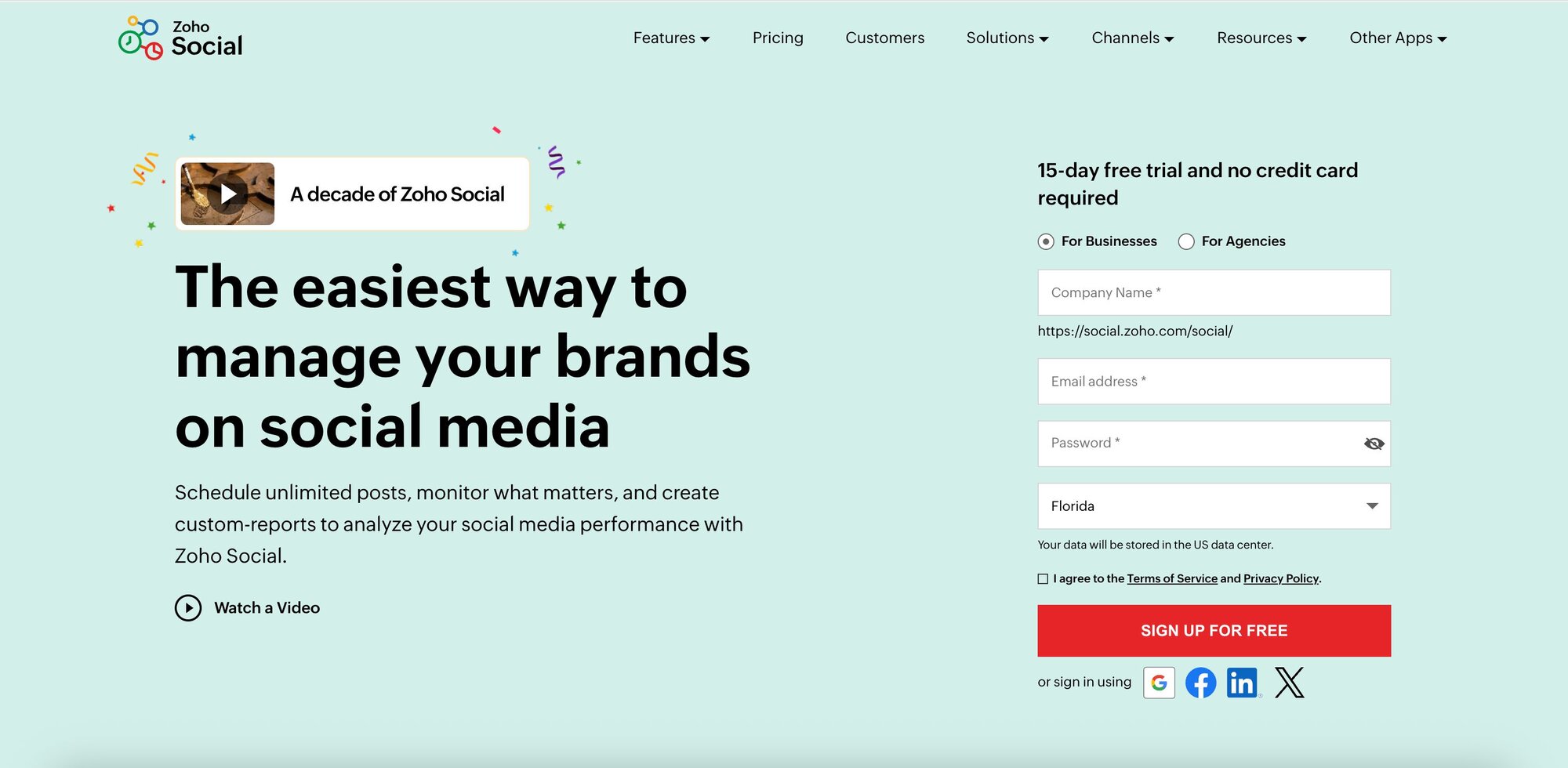
Pros
- Supports most major social platforms, including Google Business Profiles
- Handles the basics well, from publishing to centralizing incoming messages
- Has a social media management app with decent functionality
- Free plan and 15-day free trials available
Cons
- Limited creation tools (though Canva integration helps)
- Not as intuitive if you’re not using other Zoho products
Social networks











Pricing
Zoho Social offers a free plan and three paid options (plus a 15-day free trial). All paid plans have monthly and annual billing options, and you can add extra team members or brand sets as needed.
- Free: Connect up to six social channels, basic publishing features.
- Standard: $15/month or $120/year. Connect up to 11 channels, multi-channel publishing, repeat posting, and summary reports.
- Professional: $40/month or $360/year. Includes standard features plus bulk scheduling, post insights, messages, and media library.
- Premium: $65/month or $480/year. Connect up to 14 channels, lead generation tools, Zoho integrations, and more advanced content workflows.
Key features
Zoho Social is a great starting point if you’re new to social media management. It gives you access to basic but essential features so you can see which ones matter most to your workflow. Here’s what to expect.
- Post scheduling: Plan content ahead with a visual publishing calendar, SmartQ posting time suggestions, and browser extensions that make it easy to build your pipeline.
- Social inbox: Track and respond to customer interactions across platforms with help from Zia (Zoho’s AI assistant) for suggested replies.
- Monitoring and listening: Use the dashboard to follow brand mentions, keywords, and trending topics in real-time.
- Analytics and reporting: View post stats, audience insights, and performance trends, and then generate custom reports to get a clearer picture of what’s working.

Our methodology
LegalZoom’s Resource Center Team is committed to delivering honest and useful content to help readers make informed decisions. We independently research, evaluate, and decide how to present the products and services featured in our articles. All information is accurate to the best of our knowledge at the time of writing, but details may change. While some of the brands included may be our partners, we do not earn commissions from clicks.
Social media management FAQs
Can I manage multiple social media accounts with these tools?
Yes, you can manage multiple accounts with the social media tools we’ve discussed. Just keep in mind that some of them (like Meta Business Suite) are only meant for specific channels, while others support multiple platforms.
What is the best social media management platform for small businesses?
The truth is, there’s no single “best” tool for small businesses—it depends on your goals, audience, and content strategy. We believe Tailwind is an excellent option for visual brands on Instagram and Pinterest, but different tools might be a better fit if you run social media campaigns on other channels.
Can I give multiple team members access to my social media accounts?
Usually yes, most social media platforms let you add multiple users. For instance, Facebook and Instagram let you assign user roles, so you can control who’s allowed to post, comment, or view analytics, among other permissions. Likewise, most social media management tools give you the option to add team members to your account (usually for an extra fee).
What is the 5-5-5 rule for social media?
The 5-5-5 rule is more of a loose strategy than a set rule. Some say it’s about spending five minutes engaging with five people across five platforms. Others say it’s about focusing on five social platforms, taking five daily actions, and tracking five metrics. The important part is that you should try to be consistent on each platform you use, measuring your efforts and adjusting as needed to grow your presence.
All product names, logos, brands, and trademarks used in this article are the property of their respective owners. The use of any product names, logos, brands, or trademarks in this article is solely for identification and descriptive purposes, and does not imply endorsement.




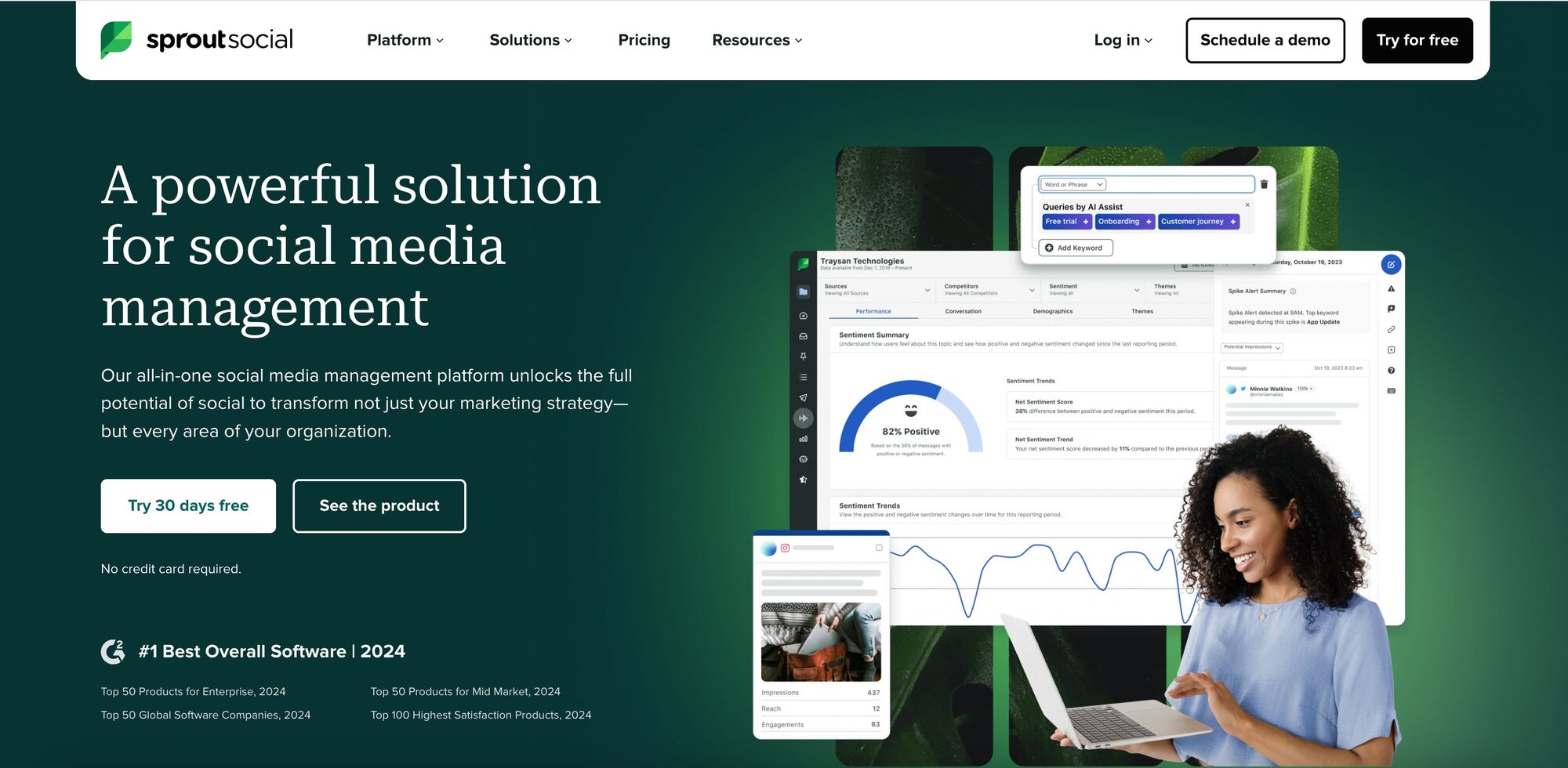
8. SocialBee: Best for content creation and recycling
Last but not least, SocialBee is a social media management tool that puts content creation front and center. With AI writing tools, post variations, and hashtag suggestions, it helps you publish at scale without constantly starting from scratch.
If you manage a high-volume social media strategy—or just want to get more out of the content you’ve already made—SocialBee is a great tool for maximizing your creative workflow.
Pros
Cons
Social networks
Pricing
SocialBee has three paid plans. All plans include a 14-day free trial, monthly or discounted annual billing options, and core features (content creation tools, scheduling, Canva integration, and automation). You can also set up add-ons for extra profiles, users, or workspaces.
Key features
SocialBee offers many of the same features you’d expect from an all-in-one platform, but its content tools are where it really shines. Here are some of the top features.